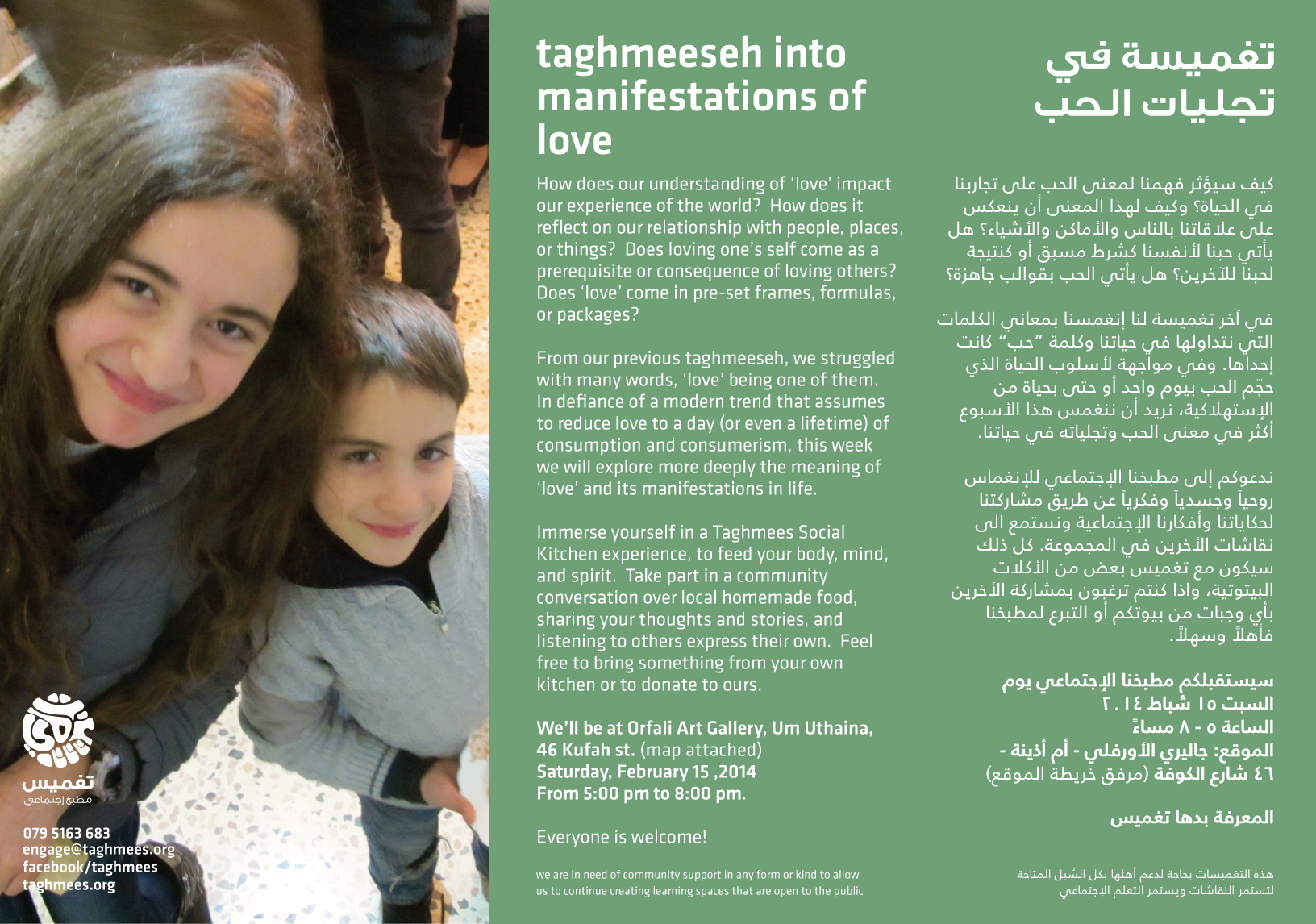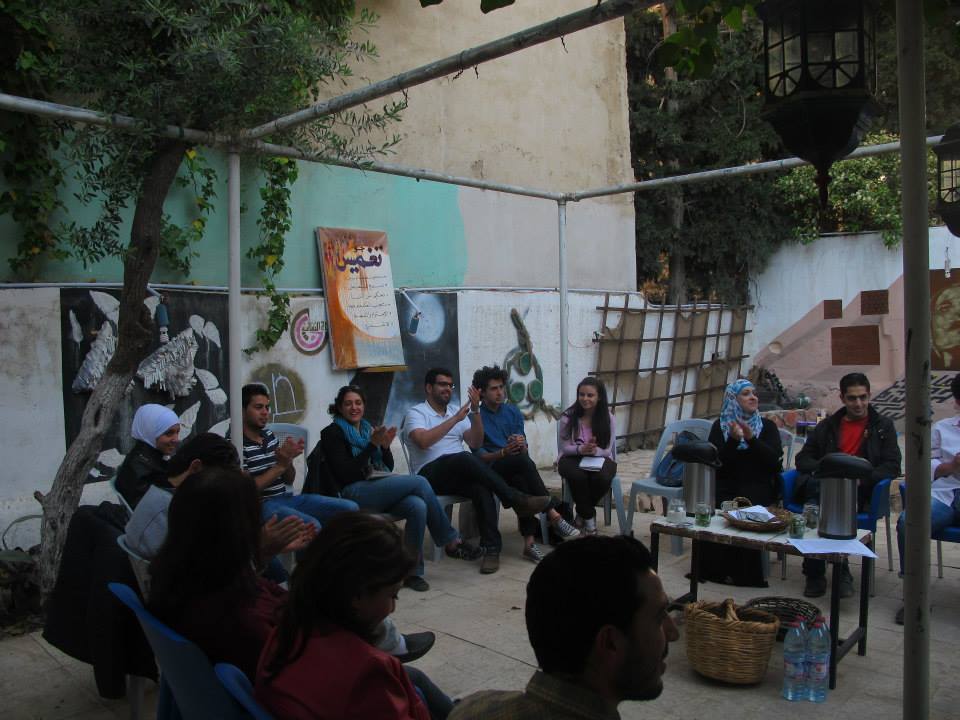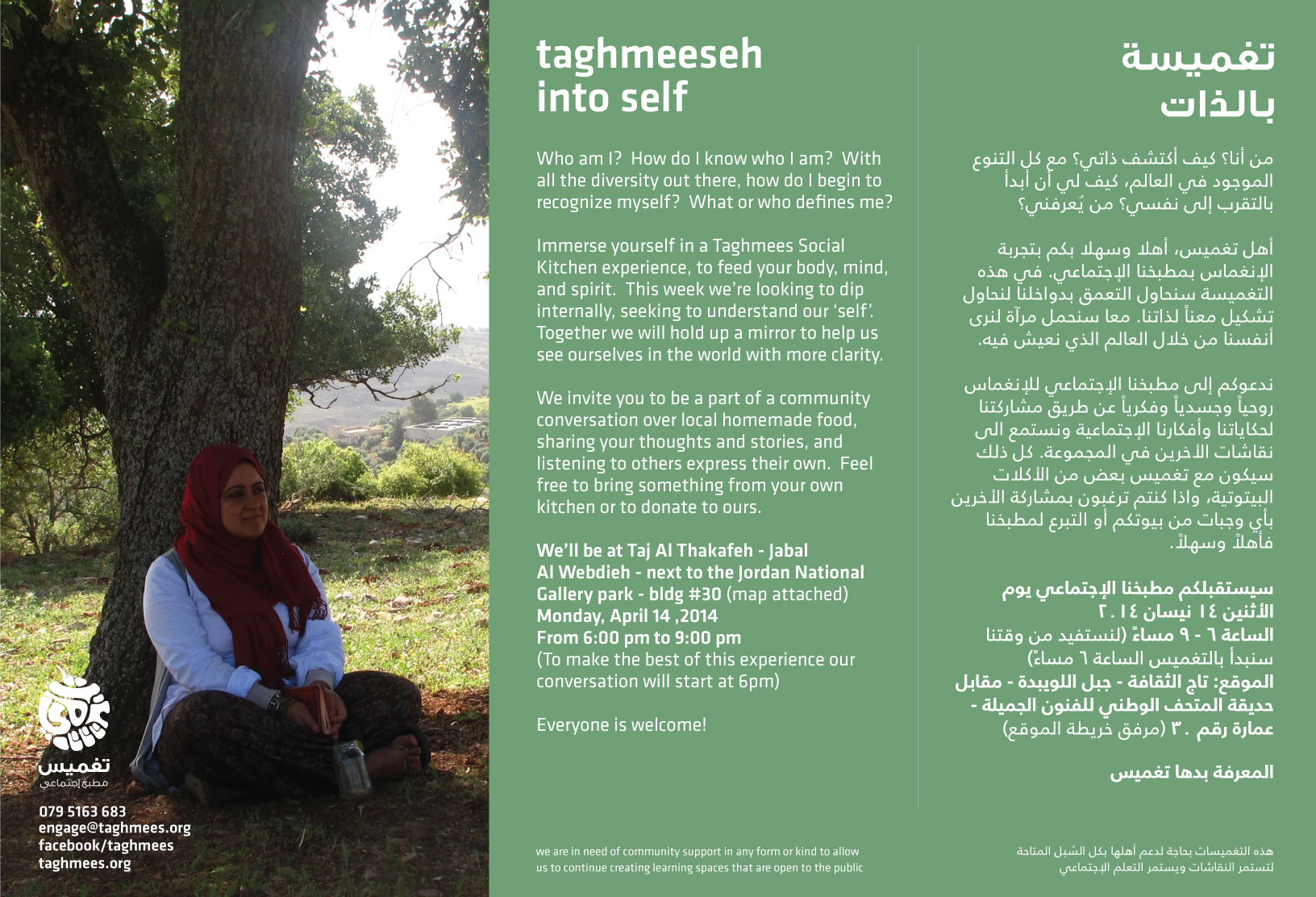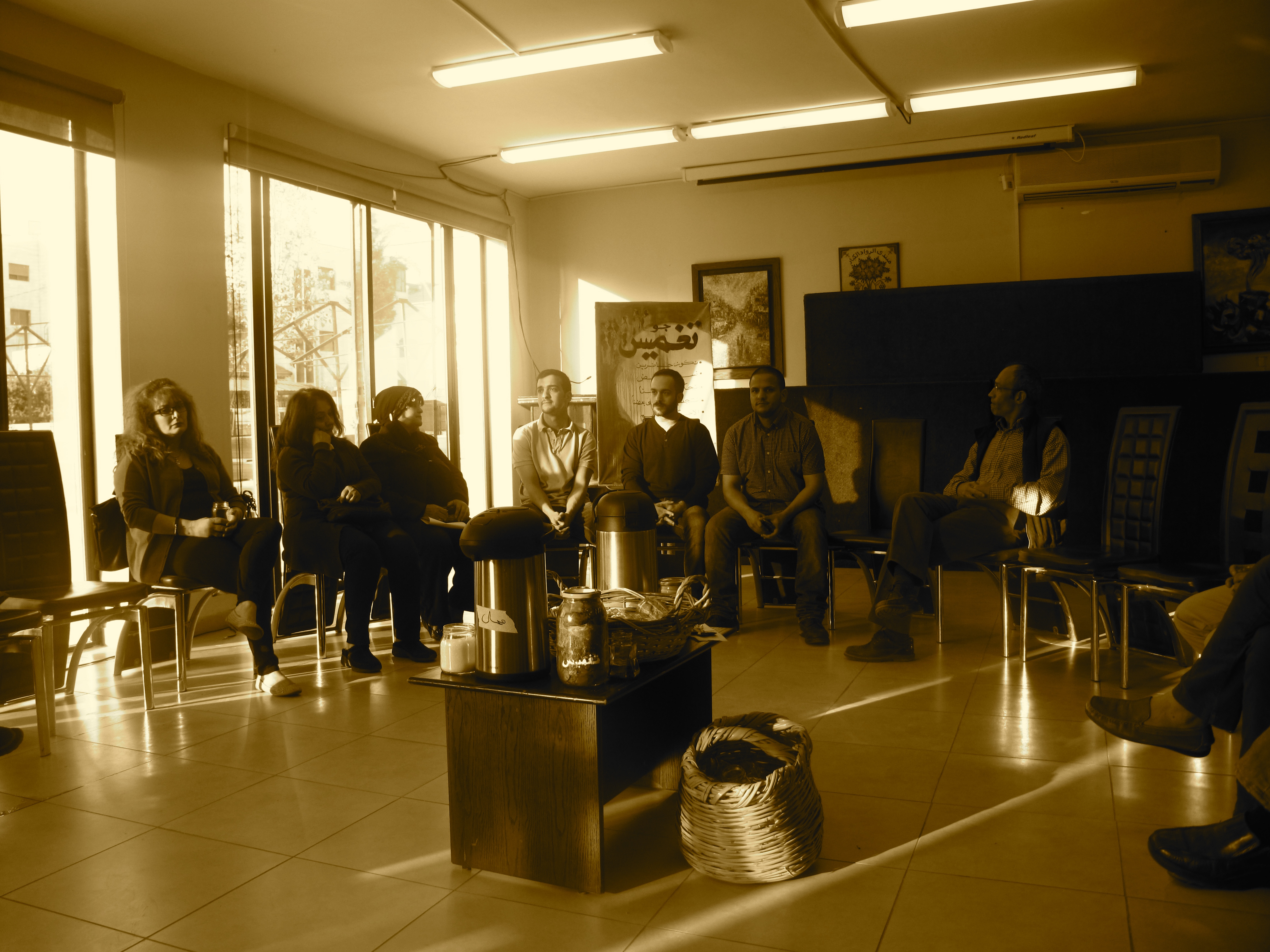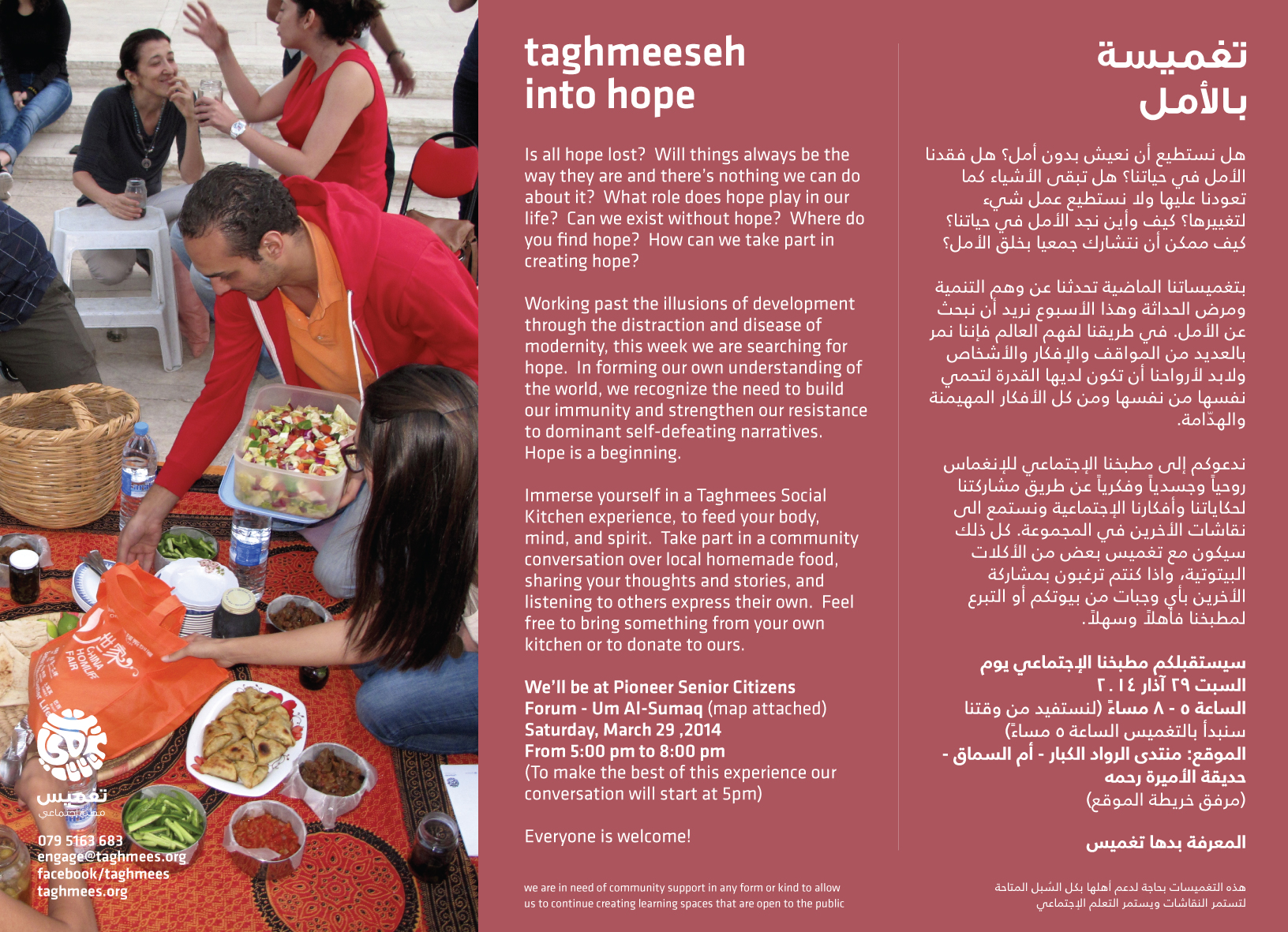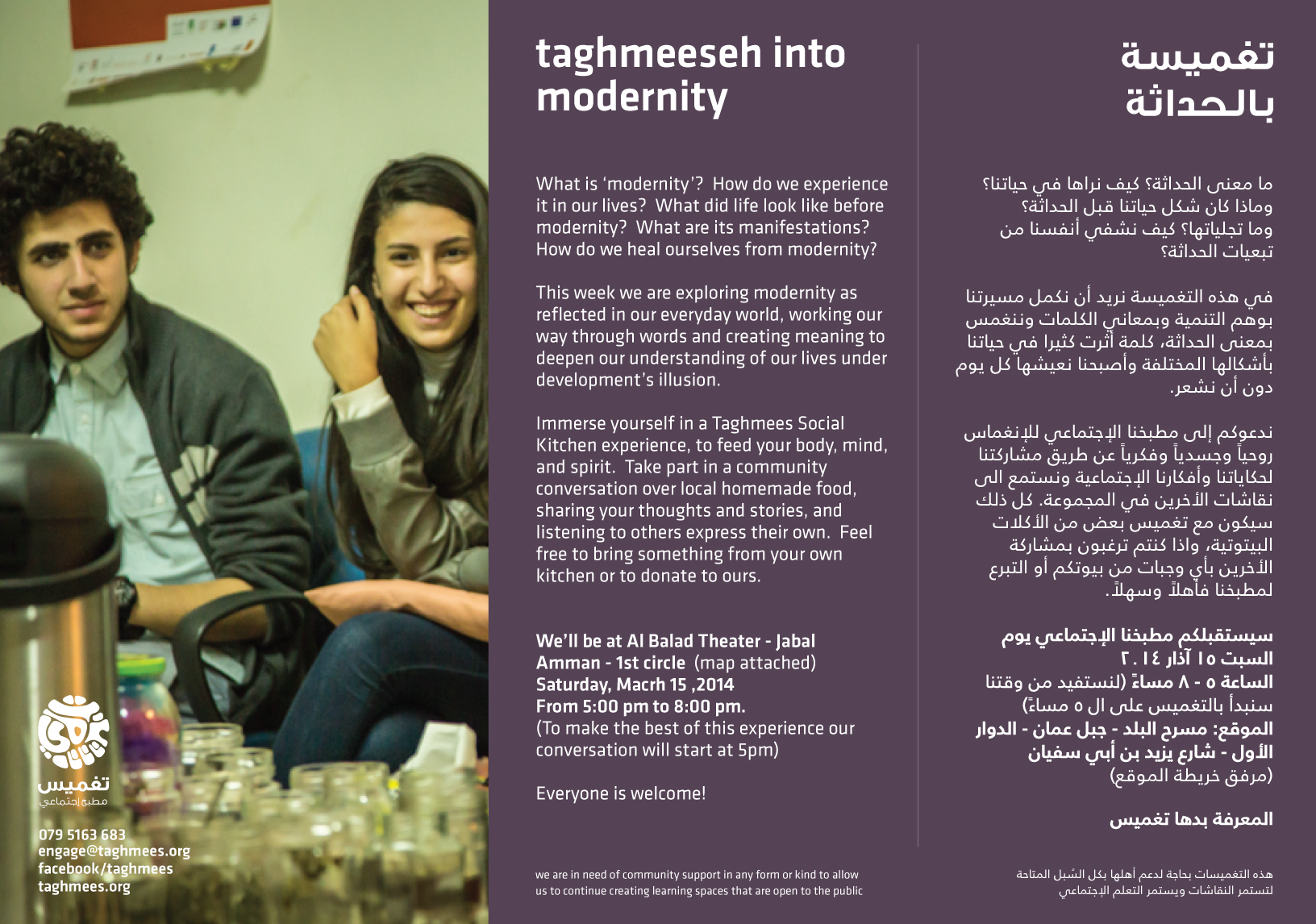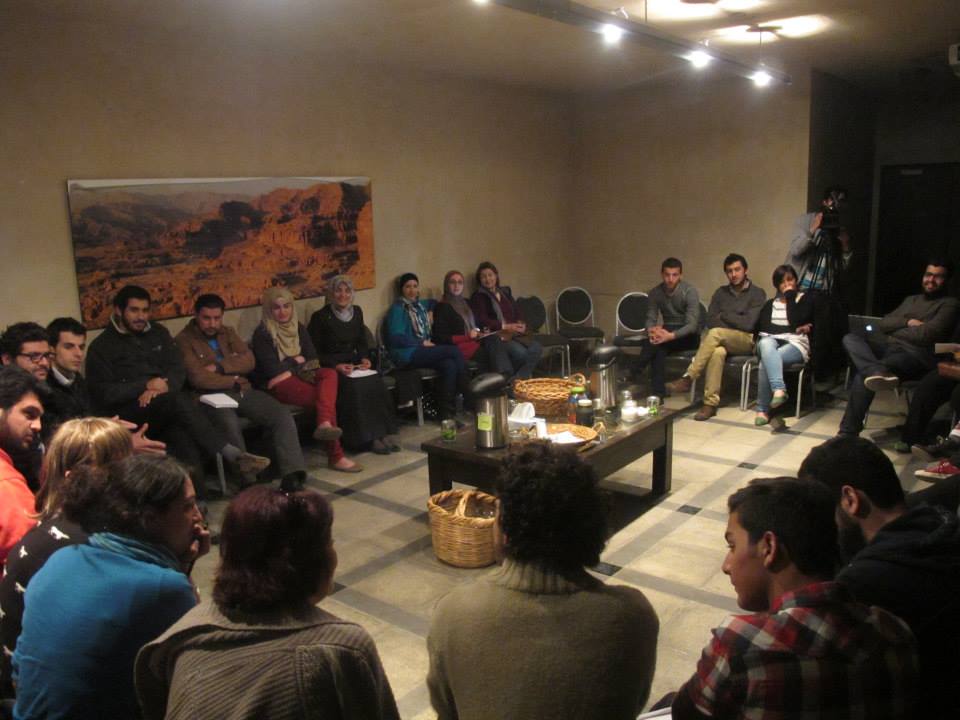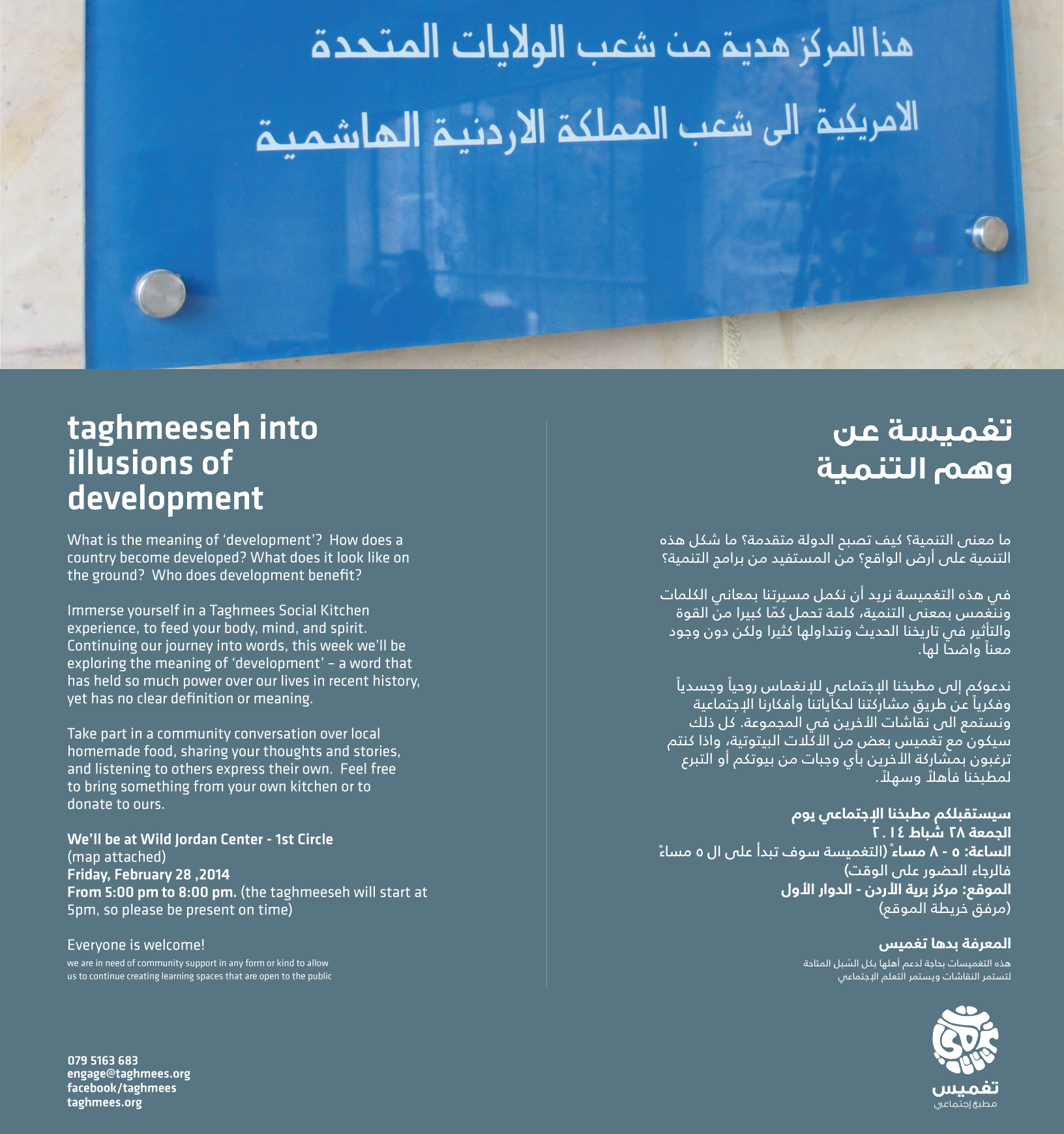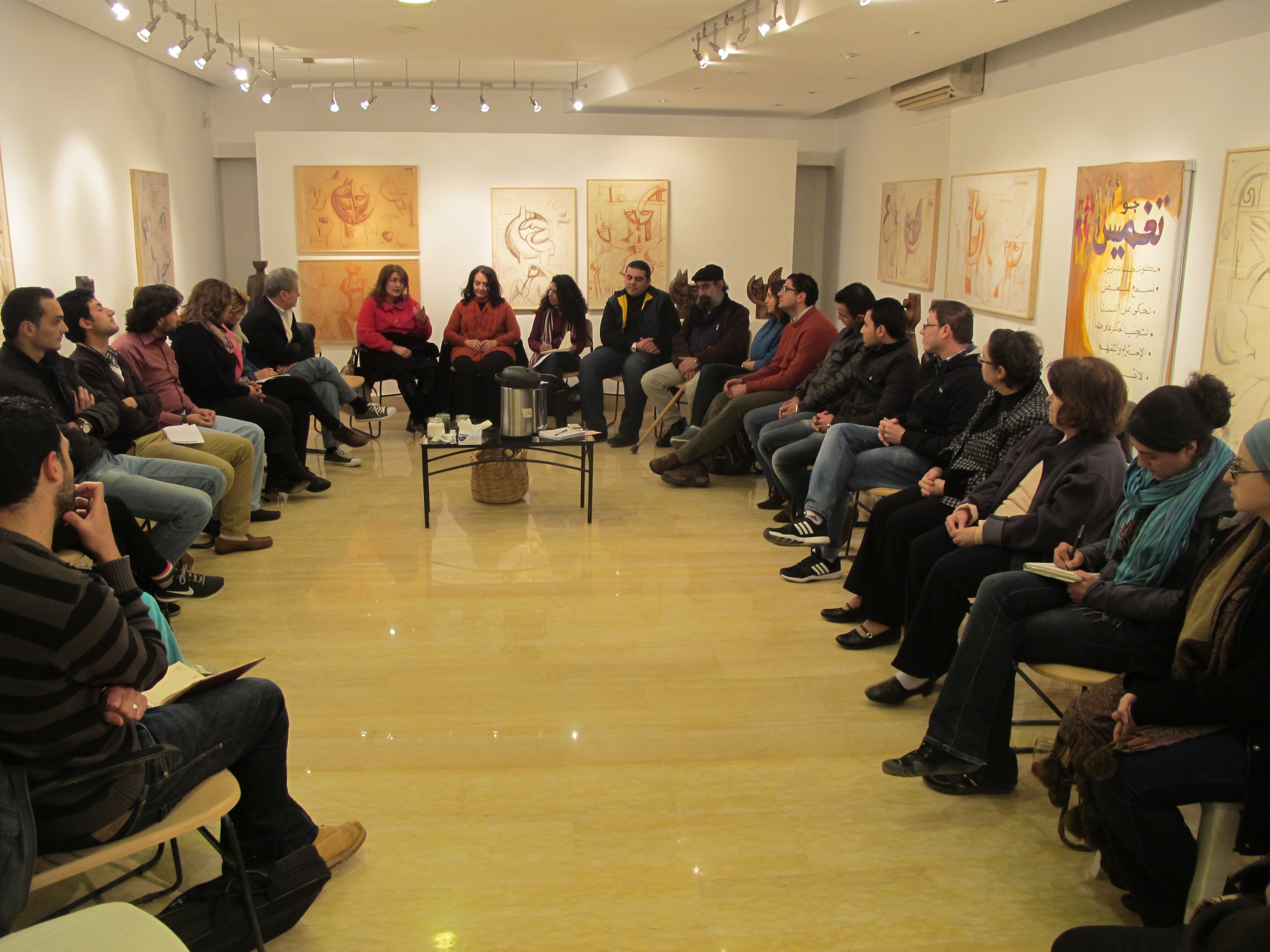
في تغميستنا ليوم أمس كنا محظوظين بأن ننغمس بالحب في جاليري الأورفلي، قصة حب للفن والمجتمع جعلت من هذا المكان حقيقة من قبل الراحلة إنعام الأورفلي واستمر هذا الحب بالتدفق عن طريق بناتها. في الجاليري كنا محاطين بالأعمال الفنية المنحوتة والمرسومة بالحب والتي ألهمت أفكارنا ونقاشاتنا.
خرجنا من هذه التغميسة بكم من الأسئلة أكثر من الأجوبة وللأسف شاركنا النظريات أكثر من القصص مما أخذ جزءا من التعلم المرتبط بتجاربنا بالحياة. هل الحب شعور بيولوجي، كيميائي و/أو جسدي؟ هل يصبح أقوى أو يختفي أو يتغير شكله بمرور الزمن؟ من يضع معايير الحب؟ هل يأتي الحب فقط مع الإستقرار المادي؟ كيف عمل الإعلام والمدنية الحديثة على تشويه صورة الحب ووضعه في قالب واحد؟ ما علاقة الحب بالحرية؟ هل نستمر بإعطاء لقب الحب مع وجود الإستغلال وعدم النضج؟ مثل ارتباط المياه بالتربة والنبات، كذلك يزدهر الحب ليغذينا بالطاقة والأمل والحياة.
من الجميل أن نرى أعداد الأهالي تزداد ونجد المزيد من الناس في مجتمعنا يريدون إكتشاف العالم من خلال تغميس. ولكنها فرحة لم تدم طويلا لإن مع الأعداد الكبيرة يغيب جو تغميس في بعض الأحيان والذي يعطي للجلسة نكهتها في التعلم والإحترام لبعض وللمكان وكيف نسمع كي نفهم وليس فقط لنجيب وبأن نعلق الأحكام ونروي قصصنا ونتكلم من قلبنا.
على عكس الإعتقاد السائد بإن الأعداد الكبيرة أفضل إلا اننا نشتاق للحميمية بالأعداد الصغيرة وبقربنا من بعض بالأرواح ومشاركتنا لقصصنا، جلسات صغيرة نسمح لأنفسنا فيها بان نكون صادقين أكثر، نكشف جزءا من حياتنا بكل خشوع ونفتح مجالا لكي نتقبل أفكارا جديدا ونعيد التفكير بما نعرفه.
ولكن مع كل تجربة هناك شيء جديد نتعلمه اذا كنا صادقين بتأملاتنا. ومن الأشياء التي تعلمناها هو أننا نريد أن نخرج بوصفة جديدة للتغميسات لنعود إلى الفكرة الأساسية بالتعلم الإجتماعي. هذا أجمل ما في المطبخ الإجتماعي بأن المجال دائما متاح لإعادة تشكيل الأشياء ولإحداث فوضى وللبدء من الجديد.
كل الشكر لجميع من غمس وإنغمس معنا في تغميسة الحب ولإلهامنا بإعادة التفكير بالسبب الرئيسي لخلق تغميس وعمل هذه الجلسات التعلمية.
From yesterday’s taghmeeseh into love and its manifestations, we had the pleasure of immersing ourselves in Orfali Art Gallery, a place that was created out of love for art and community by the late In’am Orfali, and kept alive by her daughters as an act of love for their mother. We were surrounded by works of art, sketched, carved, and crafted with love, stirring up feelings and emotions, inspiring our conversation and exploration.
Throughout the evening, we had more questions than answers, unfortunately sharing more theories than stories. Like water to plants, love nourishes, feeding energy, hope, and life. Is love biological, chemical, and/or simply physical? Does it get stronger, fade, or just change in nature over time? Is it a production-based construct, a matter of economic stability, an empirical interaction, and/or a means to an end? Who sets the standards and measures of love? Will love be found only by achieving some measure of material success? How has mainstream media and modernization distorted our images of love to fit into one unlikely frame? How do love and freedom relate and interact? Where do love and power intersect, and how do we love without exploiting or being exploited? If love is exploitative, is it still love?
It’s beautiful to see our numbers growing, and more people within our community striking out to explore life through taghmees. Our joy was only overshadowed by the unfortunate consequence that with large numbers it’s difficult to observe a culture of taghmees that is grounded in mutual respect for each other and the place, in listening to learn and not to respond, in avoiding judgment, and in sharing our personal stories and speaking from the heart.
We’re thankful to all those who came, but look forward to once again reclaiming the intended spirit and values of taghmees for ourselves and our community. Despite common logic that bigger is better, we miss the intimacy of our once smaller circles, believing to our core that learning comes through shared experience and stories, requiring a degree of honesty, humility, vulnerability, compassion, and exchange. But from every experience there is learning, if we’re honest in our reflection.
From our learning, we hope to emerge with a new potential recipe for any future taghmeeseh, working with what is available to experiment anew. After all, this is the beauty we find in being part of a social kitchen, as there’s always room for creation.
